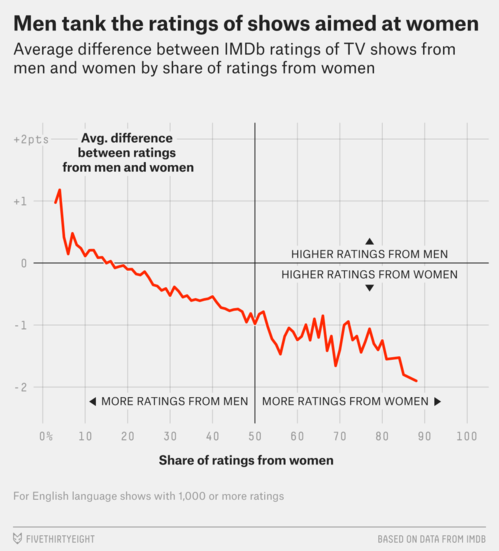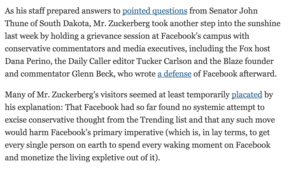Bias in media, Dan Frommer investigates
By the way, you and I agree on that. What do you think ... The point is ... Focusing this attention on them, it's negative. Do you think they think, "We're going to cycle through this?"
KS: Yes. Yes, I think they do think that. The most cynical of them know it. The others, they're such earnest ... You talk to them. "Oh, we feel bad." I'm sorry. My issue is, they are the richest and most powerful people in the world, and they're always acting like they're victims, and that's exhausting from a group of people that have an ability to actively change the world.
I was talking to, I think it was Susan Wojcicki, someone at YouTube, I think it was Susan. I had interviewed Reid Hoffman, who actually does answer questions, which is really refreshing, and in an honest way. We were at the ADL, which is the Anti-Defamation League, and I pulled up the Google search on ADL, and you got what you get. ADL.com, or whatever, the homepage. Here's some stories about ADL. Here's some issues recently about Charlottesville and ADL. It was all the ones you would expect to get.
When you went to YouTube and typed in ADL, you got alt-right, anti-Semitic videos, one after the next after the next, and it was astonishing that that was what you got. About 20, you got an interview with John Greenblatt, who's the head of it, No. 20 on the search. I think I wrote Susan a note that said, "Hey, you have this company called Google that owns you that seems to be doing a pretty good job on search, why is YouTube search so bad? Why are we getting this vile stream of horror from YouTube, when you're owned by the company who does search very well in regular circumstances?"

